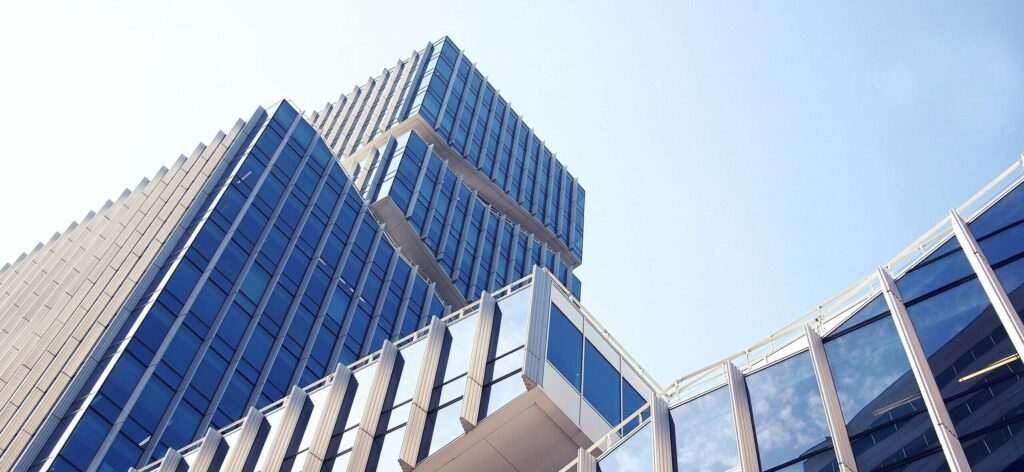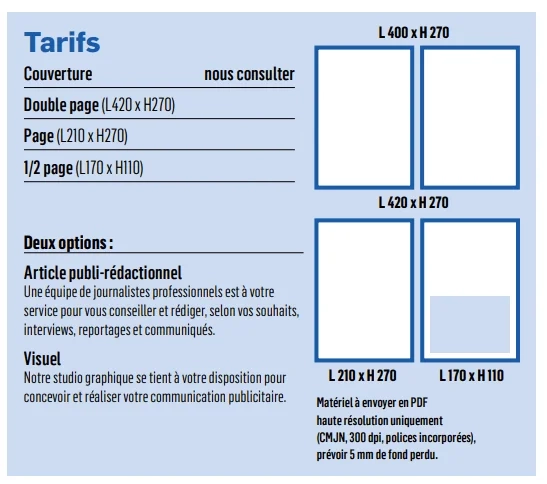Space not available
The file format is not recognized
Reserve this advertising space
Post an ad : banner or video
press release, interview, sponsorship
Choose this advertising space
and click here to transmit
an announcement file
Your ad in pop-up format
Choose this advertising space
and click here to transmit
an announcement file
a file
or
Transmit here
a file
– The new Mining Code and the law on subcontracting
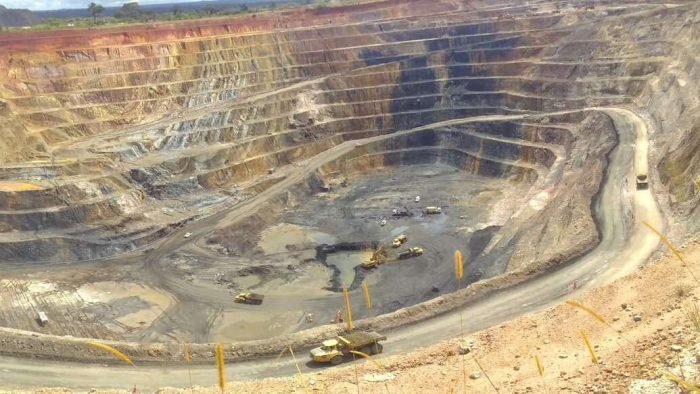
In 2018, the DRC enacted a law revising the 2002 Mining Code to encourage local mineral development. To strengthen local processing, the authorities also adopted a law on subcontracting in 2017.
Space not available
The file format is not recognized
Reserve this advertising space
Post an ad : banner or video
press release, interview, sponsorship
Choose this advertising space
and click here to transmit
an announcement file
Your ad in pop-up format
Choose this advertising space
and click here to transmit
an announcement file
a file
or
Transmit here
a file
The new 2018 Mining Code is a clear effort by the Congolese government to foster the local economy by introducing new requirements in line with the country's development objectives. The objective of the revised Code and Decree is to rebalance mining revenues in favor of the state, as the 2002 Mining Code and the 2003 Mining Decree were deemed not to have generated substantial revenues for the country's development. The new Congolese Mining Code reduces the duration of the exploitation permit from 30 to 25 years and allows for its renewal only once. The state's non-dilutive equity stake is increased from 5 to 10% and increases by an additional 5% with each renewal. Approximately 10% of mining company capital must be held by public administrations on behalf of citizens through a sovereign wealth fund.
The 2018 Code also provides:
– An increase in royalties for iron and ferrous metals from 0.5 to 1%;
– An increase in royalties for non-ferrous metals and base metals from 2 to 3.5%;
– An increase in royalties for precious metals from 2.5 to 3.5%;
– The introduction of a royalty of 10% for strategic minerals (copper and cobalt).
Finally, the new Code introduced a tax of 50% on exceptional profits, that is, profits made when the price of a commodity is 25% higher than the price used in the feasibility study acceptable to the banks.
Law No. 17/001 of 8 February 2017 establishing the rules applicable to subcontracting in the private sector makes the subcontracting of activities ancillary and related to mining activity compulsory and reserves it, whatever its nature, to companies with a majority Congolese capital in order to ensure its promotion and thus encourage the emergence of a middle class.
Space not available
The file format is not recognized
Reserve this advertising space
Post an ad : banner or video
press release, interview, sponsorship
Choose this advertising space
and click here to transmit
an announcement file
Your ad in pop-up format
Choose this advertising space
and click here to transmit
an announcement file
a file
or
Transmit here
a file
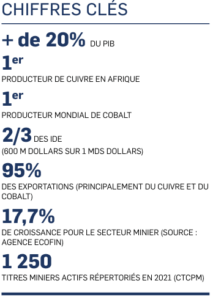
Exceptions are provided for and may justify the use of a subcontracting company that does not meet these criteria, for example, in the event of a lack of expertise on Congolese territory. However, the law and its implementing decrees strictly regulate these exceptions.
The law subjects the methods of awarding subcontracts to a specific legal regime and provides for numerous specific implementation provisions in favor of subcontractors, particularly in the terms of payment of their remuneration. The implementing decrees have supplemented the legal framework, sometimes going beyond the law, and creating a Regulatory Authority to which private sector subcontractors must pay fees, based on the amounts invoiced to the main companies.
The mining sector is capable of contributing to the realization of the government's vision of making the DRC an emerging country in socio-economic terms.
The adoption of the revised mining code in 2018 imposed new rules of the game that emphasize transparency and good governance in the sector, as well as consideration of "local content" and social and environmental responsibility (CSR). Mining must enable the country's development and benefit the Congolese people.
In the cobalt sector, one of the applications of this code concerned the artisanal sector which provides around 20% of cobalt production and has some 200,000 artisanal miners.
Combining governance and CSR requirements, measures in favor of ethical cobalt have been taken, including the establishment of the Regulatory and Control Authority for Strategic Mineral Substances Markets (Arecoms), as well as the granting of a monopoly on the purchase of artisanal cobalt to the Entreprise Générale du Cobalt (EGC), a 100% subsidiary of Gécamines, launched at the end of March 2021. They aim to combat child labor, clean up the production and supply chain of artisanal cobalt, structure the sector, and ensure good working conditions and remuneration for artisans.
Space not available
The file format is not recognized
Reserve this advertising space
Post an ad : banner or video
press release, interview, sponsorship
Choose this advertising space
and click here to transmit
an announcement file
Your ad in pop-up format
Choose this advertising space
and click here to transmit
an announcement file
a file
or
Transmit here
a file








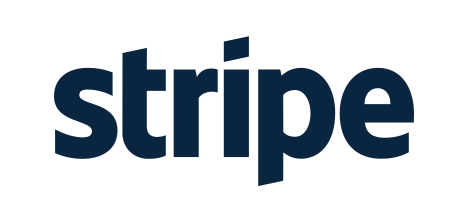







 A Seat That Transforms into a Bed
A Seat That Transforms into a Bed  In the world of air travel, economy class is often considered the most affordable option. However, at Air Afrika, we believe that affordability shouldn't mean compromising on quality of service. Our class
In the world of air travel, economy class is often considered the most affordable option. However, at Air Afrika, we believe that affordability shouldn't mean compromising on quality of service. Our class



